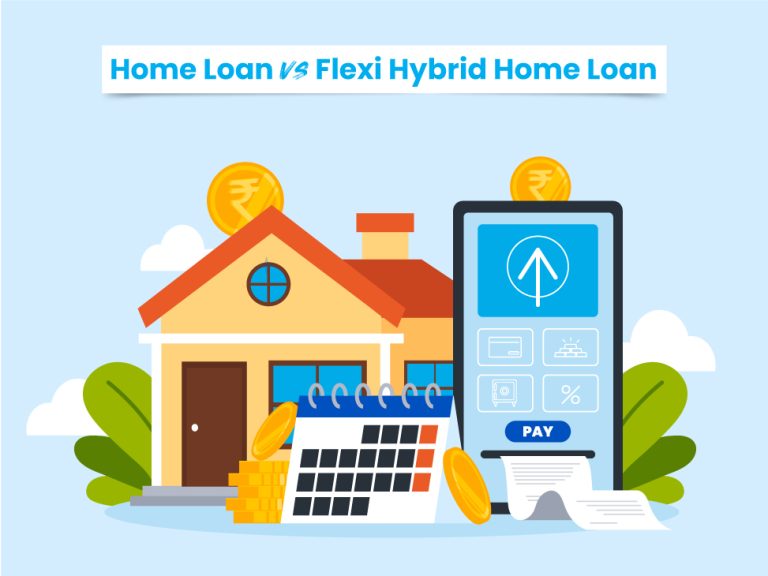Meenakshi Taheem
Getting home loan is very BASIC now
Get a loan in under 5 mins

When it comes to financing your dream home, the variety of loan options available can be both a boon and a bane. Among the plethora of choices, understanding the nuances between a traditional home loan and a Flexi Hybrid Home Loan is crucial for making an informed decision. This blog will delve into the differences between these two popular mortgage products, highlighting their features, benefits, and which might be more suitable for your financial needs.
Table of Contents
A Home Loan is the standard loan product most people refer to when they talk about mortgage financing. This type of loan is designed to help borrowers finance the purchase of a new home or property. Here are its key features:
Suggested read: Secured vs. Unsecured Home Loans
A Flexi Hybrid Home Loan is a more innovative product that offers greater flexibility in managing the flow of loan payments. This loan type is relatively new and integrates features that may benefit borrowers who expect fluctuations in their income. Key aspects include:
Suggested read: Home Loan vs Personal Loan
In conclusion, choosing between a traditional home loan and a Flexi Hybrid Home Loan depends largely on your financial situation and future income predictability. If you value consistency and are confident in your financial outlook, a traditional home loan might be the way to go. However, if you anticipate needing financial flexibility due to the nature of your income, a Flexi Hybrid Home Loan could provide the breathing room you need.
Before deciding, it’s essential to consult with financial advisors or loan consultants who can provide tailored advice based on your personal financial landscape. Remember, the right home loan product can make a significant difference in your financial health over the long term.
A Flexi Hybrid loan can be a good choice for borrowers who expect fluctuations in their income and need flexibility in their repayment schedule. It allows for interest-only payments initially and provides options for prepayment and re-borrowing, which can help manage cash flow more effectively.
Flexi loans, as a product, are offered by various banks and NBFCs (Non-Banking Financial Companies) that are regulated and registered with the Reserve Bank of India (RBI). The specific product terms and compliance with RBI guidelines depend on the financial institution offering the loan.
Flexi loans can be either secured or unsecured, depending on the specific terms set by the lender and the purpose of the loan. For instance, a Flexi Home Loan would typically be secured against the property being financed.
Borrowers might choose a Flexi Hybrid loan for several reasons, including the flexibility to make prepayments without penalties, the ability to pay interest only at the start of the loan, and the option to withdraw pre-paid amounts. This can be particularly advantageous for those with variable incomes or those who anticipate future cash inflows that could cover loan payments.
The best choice between a traditional home loan and a Flexi Hybrid home loan depends on the borrower’s financial stability, cash flow, and personal needs. Traditional home loans are suitable for individuals with steady incomes who can handle fixed monthly payments, while Flexi Hybrid home loans offer more flexibility and might be better for those with fluctuating income or who prefer having the option to adjust their payment schedules based on their financial situation.
Published on 19th April 2024